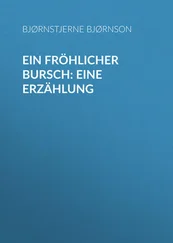Bjørnstjerne Bjørnson - A Happy Boy
Здесь есть возможность читать онлайн «Bjørnstjerne Bjørnson - A Happy Boy» — ознакомительный отрывок электронной книги совершенно бесплатно, а после прочтения отрывка купить полную версию. В некоторых случаях можно слушать аудио, скачать через торрент в формате fb2 и присутствует краткое содержание. Жанр: foreign_prose, foreign_antique, на английском языке. Описание произведения, (предисловие) а так же отзывы посетителей доступны на портале библиотеки ЛибКат.
- Название:A Happy Boy
- Автор:
- Жанр:
- Год:неизвестен
- ISBN:нет данных
- Рейтинг книги:5 / 5. Голосов: 1
-
Избранное:Добавить в избранное
- Отзывы:
-
Ваша оценка:
- 100
- 1
- 2
- 3
- 4
- 5
A Happy Boy: краткое содержание, описание и аннотация
Предлагаем к чтению аннотацию, описание, краткое содержание или предисловие (зависит от того, что написал сам автор книги «A Happy Boy»). Если вы не нашли необходимую информацию о книге — напишите в комментариях, мы постараемся отыскать её.
A Happy Boy — читать онлайн ознакомительный отрывок
Ниже представлен текст книги, разбитый по страницам. Система сохранения места последней прочитанной страницы, позволяет с удобством читать онлайн бесплатно книгу «A Happy Boy», без необходимости каждый раз заново искать на чём Вы остановились. Поставьте закладку, и сможете в любой момент перейти на страницу, на которой закончили чтение.
Интервал:
Закладка:
"Is it always so here?" he whispered to Marit.
"Yes, always," said she.
Later they had to go forward to the school-master and read; a little boy was afterwards appointed to teach them to read, and then they were allowed to go and sit quietly down again.
"I have a goat now myself," said Marit.
"Have you?"
"Yes, but it is not as pretty as yours."
"Why do you never come up to the cliff again?"
"Grandfather is afraid I might fall over."
"Why, it is not so very high."
"Grandfather will not let me, nevertheless."
"Mother knows a great many songs," said Oyvind.
"Grandfather does, too, I can tell you."
"Yes, but he does not know mother's songs."
"Grandfather knows one about a dance. Do you want to hear it?"
"Yes, very much."
"Well, then, come nearer this way, that the school-master may not see us."
He moved close to her, and then she recited a little snatch of a song, four or five times, until the boy learned it, and it was the first thing he learned at school.
"Dance!" cried the fiddle;
Its strings all were quaking,
The lensmand's son making
Spring up and say "Ho!"
"Stay!" called out Ola,
And tripped him up lightly;
The girls laughed out brightly,
The lensmand lay low.
"Hop!" said then Erik,
His heel upward flinging;
The beams fell to ringing,
The walls gave a shriek.
"Stop!" shouted Elling,
His collar then grasping,
And held him up, gasping:
"Why, you're far too weak!"
"Hey!" spoke up Rasmus,
Fair Randi then seizing;
"Come, give without teasing
That kiss. Oh! you know!"
"Nay!" answered Randi,
And boxing him smartly,
Dashed off, crying tartly:
"Take that now and go!" 5 5 Auber Forestier's translation.
"Up, youngsters!" cried the school-master; "this is the first day, so you shall be let off early; but first we must say a prayer and sing."
The whole school was now alive; the little folks jumped down from the benches, ran across the floor and all spoke at once.
"Silence, little gypsies, young rascals, yearlings!—be still and walk nicely across the floor, little children!" said the school-master, and they quietly took their places, after which the school-master stood in front of them and made a short prayer. Then they sang; the school-master started the tune, in a deep bass; all the children, folding their hands, joined in. Oyvind stood at the foot, near the door, with Marit, looking on; they also clasped their hands, but they could not sing.
This was the first day at school.
CHAPTER III
Oyvind grew and became a clever boy; he was among the first scholars at school, and at home he was faithful in all his tasks. This was because at home he loved his mother and at school the school-master; he saw but little of his father, who was always either off fishing or was attending to the mill, where half the parish had their grinding done.
What had the most influence on his mind in these days was the school-master's history, which his mother related to him one evening as they sat by the hearth. It sank into his books, it thrust itself beneath every word the school-master spoke, it lurked in the school-room when all was still. It caused him to be obedient and reverent, and to have an easier apprehension as it were of everything that was taught him.
The history ran thus:—
The school-master's name was Baard, and he once had a brother whose name was Anders. They thought a great deal of each other; they both enlisted; they lived together in the town, and took part in the war, both being made corporals, and serving in the same company. On their return home after the war, every one thought they were two splendid fellows. Now their father died; he had a good deal of personal property, which was not easy to divide, but the brothers decided, in order that this should be no cause of disagreement between them, to put the things up at auction, so that each might buy what he wanted, and the proceeds could be divided between them. No sooner said than done. Their father had owned a large gold watch, which had a wide-spread fame, because it was the only gold watch people in that part of the country had seen, and when it was put up many a rich man tried to get it until the two brothers began to take part in the bidding; then the rest ceased. Now, Baard expected Anders to let him have the watch, and Anders expected the same of Baard; each bid in his turn to put the other to the test, and they looked hard at each other while bidding. When the watch had been run up to twenty dollars, it seemed to Baard that his brother was not acting rightly, and he continued to bid until he got it almost up to thirty; as Anders kept on, it struck Baard that his brother could not remember how kind he had always been to him, nor that he was the elder of the two, and the watch went up to over thirty dollars. Anders still kept on. Then Baard suddenly bid forty dollars, and ceased to look at his brother. It grew very still in the auction-room, the voice of the lensmand one was heard calmly naming the price. Anders, standing there, thought if Baard could afford to give forty dollars he could also, and if Baard grudged him the watch, he might as well take it. He bid higher. This Baard felt to be the greatest disgrace that had ever befallen him; he bid fifty dollars, in a very low tone. Many people stood around, and Anders did not see how his brother could so mock at him in the hearing of all; he bid higher. At length Baard laughed.
"A hundred dollars and my brotherly affection in the bargain," said he, and turning left the room. A little later, some one came out to him, just as he was engaged in saddling the horse he had bought a short time before.
"The watch is yours," said the man; "Anders has withdrawn."
The moment Baard heard this there passed through him a feeling of compunction; he thought of his brother, and not of the watch. The horse was saddled, but Baard paused with his hand on its back, uncertain whether to ride away or no. Now many people came out, among them Anders, who when he saw his brother standing beside the saddled horse, not knowing what Baard was reflecting on, shouted out to him:—
"Thank you for the watch, Baard! You will not see it run the day your brother treads on your heels."
"Nor the day I ride to the gard again," replied Baard, his face very white, swinging himself into the saddle.
Neither of them ever again set foot in the house where they had lived with their father.
A short time after, Anders married into a houseman's family; but Baard was not invited to the wedding, nor was he even at church. The first year of Anders' marriage the only cow he owned was found dead beyond the north side of the house, where it was tethered, and no one could find out what had killed it. Several misfortunes followed, and he kept going downhill; but the worst of all was when his barn, with all that it contained, burned down in the middle of the winter; no one knew how the fire had originated.
"This has been done by some one who wishes me ill," said Anders,—and he wept that night. He was now a poor man and had lost all ambition for work.
The next evening Baard appeared in his room. Anders was in bed when he entered, but sprang directly up.
"What do you want here?" he cried, then stood silent, staring fixedly at his brother.
Baard waited a little before he answered,—
"I wish to offer you help, Anders; things are going badly for you."
"I am faring as you meant I should, Baard! Go, I am not sure that I can control myself."
"You mistake, Anders; I repent"—
"Go, Baard, or God be merciful to us both!"
Baard fell back a few steps, and with quivering voice he murmured,—
Читать дальшеИнтервал:
Закладка:
Похожие книги на «A Happy Boy»
Представляем Вашему вниманию похожие книги на «A Happy Boy» списком для выбора. Мы отобрали схожую по названию и смыслу литературу в надежде предоставить читателям больше вариантов отыскать новые, интересные, ещё непрочитанные произведения.
Обсуждение, отзывы о книге «A Happy Boy» и просто собственные мнения читателей. Оставьте ваши комментарии, напишите, что Вы думаете о произведении, его смысле или главных героях. Укажите что конкретно понравилось, а что нет, и почему Вы так считаете.












